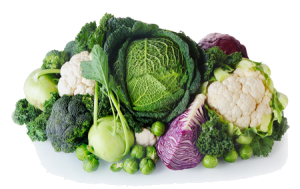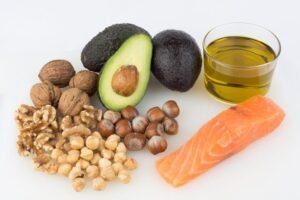 The brain is a specialized organ which sets us apart from all other animals. It’s miraculous when you think of all the unconscious things, we never need to even think about such as breathing, our heart beating, and digestion, never mind the conscious things like movement and thinking it allow us to do.
The brain is a specialized organ which sets us apart from all other animals. It’s miraculous when you think of all the unconscious things, we never need to even think about such as breathing, our heart beating, and digestion, never mind the conscious things like movement and thinking it allow us to do.
With that in mind, we can’t blame the brain for being an energy hog. It utilizes 25% percent of our metabolism but accounts for only 1-2% of our weight.
Good brain function is all about the connections or synapses and dendrites which are also referred to as white matter. So, it’s not about the size of your brain. For example, Albert Einstein arranged for his brain to be examined after his death. It weighed less than an average brain, but the connections were immense.
One constant about the most complex organ we have is the capacity to learn new information, grow new connections and repair broken ones. This is known as “brain plasticity.” Throughout life, as we age, acquire knowledge, and have more experiences, our brain continues to develop.
This is good news! You can begin taking care of your brain at any age and net positive results.
Diet plays an important role in brain function and healthy aging. One of the factors that makes your brain different from other tissues in the body is that our neurons do not store energy. Your brain needs to be constantly feed by blood vessels around it to provide a constant supply of oxygen, or the neurons die.
The brain also needs access to proper ingredients to keep it going including minerals, amino acids, vitamins, choline, essential fatty acids, and phytonutrients.
When the brain can’t get adequate energy, oxygen, or nutrients it can’t do its job well which causes damage. Over the long haul this can lead to Alzheimer’s and dementia.
When it comes to diet much of what will help the brain function optimally is an anti-inflammatory, low glycemic lifestyle.
5 Tips to a Healthier Brain
 1. Eat More Vegetables. Every nutritionist across the world agrees that a high intake of veggies is paramount to good health. In the case of the brain, green leafy veggies have been specifically shown to decrease dementia and cognitive decline. The goal is to consume 2 cups per day. It’s possible that might be a big leap for you right now. So, start with a smaller amount.
1. Eat More Vegetables. Every nutritionist across the world agrees that a high intake of veggies is paramount to good health. In the case of the brain, green leafy veggies have been specifically shown to decrease dementia and cognitive decline. The goal is to consume 2 cups per day. It’s possible that might be a big leap for you right now. So, start with a smaller amount.
An easy and effective way to tackle this is to get a small box of washed (preferably organic) spinach at the grocery store and get creative. Think about how you can add greens to most everything you eat such as eggs in the morning, or a smoothie. Lunch is a good opportunity to add greens to soup, a sandwich or salad. Finally make it a goal to fill half of your dinner plate with veggies. Try roasting some veggies and topping them off with a couple of handfuls of greens in the final few minutes of cooking.
Cruciferous veggies are also important to keep your brain healthy because they increase DNA methylation which impacts gene expression. DNA methylation decreases with age.
Good sources of the crucifers include broccoli, cauliflower, Brussels sprouts, kale, collard and mustard greens, arugula, radishes
 2. Eat Some Fruit. Blueberries tend get all the love but other berries such as strawberries, raspberries and blackberries are chock full of flavonoids which is an important nutrient for the brain. And variety is not only the spice of life, but you get more nutrients too. Berries are also a great low glycemic choice.
2. Eat Some Fruit. Blueberries tend get all the love but other berries such as strawberries, raspberries and blackberries are chock full of flavonoids which is an important nutrient for the brain. And variety is not only the spice of life, but you get more nutrients too. Berries are also a great low glycemic choice.
3. Eat More Healthy Fats. Did you know that 60% of your brain is made up of fat? Healthy fats which are chock full of essential fatty acids are the building blocks for neurotransmitters which are a vital part of the brain’s communication system.
Essential fatty acids (EFAs) are vitally important for brain development during prenatal and infancy stages. They are also of value in limiting the cognitive decline during aging. Since essential fatty acids are not manufactured by the body, we need to make sure to get them through food. Some good sources include:
 Nuts
Nuts
Salmon and other fatty fish
Avocado
Coconut oil, avocado oil
Olive oil
Whole eggs
Seeds
Dark chocolate
4. Avoid certain foods.
- Processed foods
- Refined carbs and sugar
- Too many carbs in your diet
- Sugar
- Toxins in food—Pesticides from conventionally farmed fruits and vegetables are a significant source of toxins in our food. Try to eat as organic as you can. The website ewg.org is a great source of information on pesticides in food.
5. Consider supplementation. This is a great topic for a future blog post. They can make a difference.
You don’t need to do all of this at once. My theme for the year is small actions create big results. Add one or two of these ideas over the next month. After a month you might begin to feel like you are getting in the groove on these new behaviors so you can think about adding one or two more of the tips.
If you are on Facebook please join me in my complimentary free group Choices for Graceful Aging (https://www.facebook.com/groups/2925226717792896) or join me on Instagram @ruthclarknutrition.

